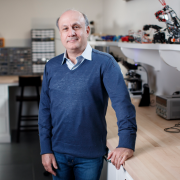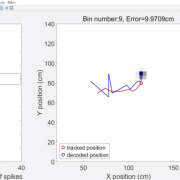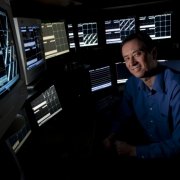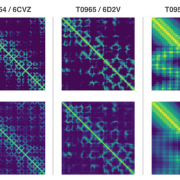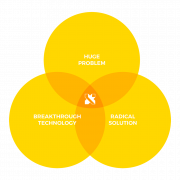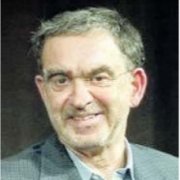January 1, 2019 - 12:00 pm
David Siegel provides philanthropic support for MIT’s Quest for Intelligence
by Brittany Flaherty, Science writer for the MIT School of ScienceScience@MIT
November 1, 2018
When he was nine years old, David Siegel SM ’86, PhD ’91, took his first computer programming class at New York University and was instantly hooked. Siegel has blazed trails in computer science ever since, including a long history of philanthropy and involvement at MIT through...
January 1, 2019 - 12:00 pm
Dear Friends,
The fall brings us a new academic year, many new developments, and a new issue of Science@MIT.
The biggest recent change to the campus is the completion of the MIT.nano building. This remarkable new facility—from the formal announcement of its construction in 2014 to its official grand opening this fall—represents a tremendous advance in MIT’s nanoscale research capabilities. With more than 200,000 square feet of space, including...
December 26, 2018 - 10:00 am
PUBLIC RELEASE: 4-DEC-2018
PICOWER INSTITUTE AT MIT
The rat in a maze may be one of the most classic research motifs in brain science, but a new innovation described in Cell Reports by an international collaboration of scientists shows just how far such experiments are still pushing the cutting edge of technology and neuroscience alike.
In recent years, scientists have shown that by recording the electrical activity of groups of neurons in key...
December 19, 2018 - 11:00 am
New open-source system provides fast, accurate neural decoding and real-time readouts of where rats think they are.
David Orenstein | Picower Institute for Learning and Memory
The rat in a maze may be one of the most classic research motifs in brain science, but a new innovation described in Cell Reports by an international collaboration of scientists shows just how far such experiments are still pushing the cutting edge of technology and...
December 19, 2018 - 9:00 am
Professor honored for work on the nature and origins of intelligence in the human mind and applying that knowledge to build human-like intelligence in machines.
Sara Cody | Department of Brain and Cognitive Sciences
December 19, 2018
R&D Magazine has named Josh Tenenbaum the 2018 Innovator of the Year. Tenenbaum, a professor of computational cognitive science in the Department of Brain and Cognitive Sciences at MIT, was recognized for his...
December 14, 2018 - 1:00 pm
Professor Lorenzo Rosasco of the Department of Computer Science, Bioengineering, Robotics and Systems Engineering (DIBRIS) has won a European Research Council (ERC consolidator) grant with the project "Efficient algorithms for sustainable machine learning".
The project will develop new machine learning algorithms to tackle challenges in artificial intelligence and data science.
The grant will be funded with €2 million over 5 years, and is part...
December 14, 2018 - 9:00 am
R&D Magazine is proud to announce Josh Tenenbaum, PhD, a computational cognitive scientist at Massachusetts Institute of Technology (MIT), as the 2018 Innovator of the Year. Tenenbaum was honored for his work studying the nature and origins of intelligence in the human mind and brain and applying that knowledge to build more human-like intelligence in machines.
A full feature on Tenenbaum’s accomplishments will be featured in the December...
December 11, 2018 - 3:30 pm
by Sam Shead, Contributor
Tech billionaire Eric Schmidt, the former CEO of Google, is optimistic that humans will be able to shut down dangerous machines should they start to appear.
Speaking last week on an artificial intelligence podcast hosted by MIT research scientist Lex Fridman, Schmidt said that he didn't share the same concerns as people like Elon Musk, MIT professor Max Tegmark, or Nick Bostrom, a Swedish philosopher at Oxford...
December 3, 2018 - 1:15 pm
by Natasha Lomas
Google-owned AI specialist, DeepMind, has claimed a “significant milestone” in being able to demonstrate the usefulness of artificial intelligence to help with the complex task of predicting 3D structures of proteins based solely on their genetic sequence.
Understanding protein structures is important in disease diagnosis and treatment, and could improve scientists’ understanding of the human body — as well as potentially...
November 30, 2018 - 4:00 pm
Singleton Auditorium(46-3002)
Ari Rosenberg, University of Wisconsin - Madison
Abstract: Our sensory systems are unable to directly sense all the aspects of the world we perceive. For example, our perception of the world as three-dimensional (3D) is compelling, but our eyes only detect two-dimensional (2D) projections of our surroundings. Creating accurate and precise 3D...
November 20, 2018 - 2:15 pm
THE AI RESIDENCY PROGRAM AT X, THE MOONSHOT FACTORY
https://x.company/careers-at-x/4114336002/
At Alphabet (formerly Google) X, we create breakthrough technologies to help solve some of the world’s hardest problems. AI is ushering in a new generation of moonshots and moonshot-takers at X. Our residency program is geared towards those who want to apply their AI abilities in experimental yet highly practical ways to make meaningful progress...
November 18, 2018 - 11:15 am
Double major Kerrie Greene builds connections in her research and her community.
by Brittany Flaherty | School of Science
Looking up at the sun-filled atrium of the Brain and Cognitive Sciences Complex, MIT senior Kerrie Greene smiles. “I love this building,” she says about the place that houses the lab where she first became interested in the inner workings of the human brain.
Greene juggles many roles on campus and in her personal life —...
November 14, 2018 - 11:15 am
For three Committed to Caring honorees, mentorship is demonstrated through generosity and making connections.
by Courtney Lesoon | Office of Graduate Education
The journey through graduate school is rarely straight and smooth. There are challenges and setbacks, students experience varying degrees of doubt and struggle, and many redefine their goals along the way. On this winding path, the guidance of a mentor can make all the difference to a...
November 14, 2018 - 4:30 am
Stata Blgd, 32-155
Sasha Rakhlin, MIT, LIDS, CBMM
Prof. Rakhlin will be presenting the ML seminar talk next week in CSAIL, MIT Bldg 32.
Abstract: We revisit the basic question: can a learning method be successful if it perfectly fits (interpolates/memorizes) the data? The question is motivated by the good out-of-sample performance of ``...
Abstract: We revisit the basic question: can a learning method be successful if it perfectly fits (interpolates/memorizes) the data? The question is motivated by the good out-of-sample performance of ``...
November 12, 2018 - 9:15 am
[Google translated] Tomaso Poggio, director of the Center for Brains, Minds & Machines of MIT of Boston, studies the relationships between computer science
and neuroscience. "The cars are better than us since the 50s, but we do not have to fear artificial intelligence".
View the PDF of the Italian article.

